- Learning time
- 30 minutes
- First play time
- 100 minutes
First Rat
Designed by: Gabriele Ausiello,Virginio Gigli
Inspired by Neil, Buzz and Michael, in First Rat you are the starry-eyed rodents of the title – trying to reach the moon. The game isn’t so much a high-velocity race through the cosmos, however, but a story of rival rat projects building rockets from discarded cereal packets and baking soda: in the unsalubrious surroundings of a rubbish dump.
The board shows a track along which your rats – you start with two – progress. On your turn you can either move one rat up to five spaces, or all your rats up to three spaces each, as long as they both stop in a space of a matching colour. If you stop where there’s an opponent rat, you must pay them in cheese for the privilege of sharing that space. Then you take the rewards on the space or spaces: it might be component parts for rat rocketry (green and orange spaces) cheese (yellow spaces) or moving some secondary markers along their respective tracks; in the burrow, or above ground along the lighting track, which runs alongside the main track.
The lighting track does two things: one, it increases what your rats gather in any spaces your lights marker has passed or reached. Two, when it hits certain points on the lighting track, it rewards you with points.
The burrow can gather you three different things, depending on which route you take around it’s one-way circuit: in-game benefits such as making your rats speedier or making the main track’s short-cuts free to use. It can trigger a third and fourth rat on the main track (very helpful!), or you can simply use it to score points.
Finally, certain points on the main track will sell you in-game advantages (for cheese) when you stop there, but you can also steal these instead: the cost being your thieving rat will move back to the start of the main track. If your rat reaches the end of the track, it can turn astronaut and jump aboard the rocket (for points!) At the end of your turn, you can pay rocket parts back to the supply to contribute to the building of rockets (-also points) and everyone’s contributions and achievements are tracked on various tracks by cubes in your own colour. When anyone runs out of cubes, or gets their last rat aboard the rocket, the end-game is triggered and after the current round (if someone has all four rats aboard a rocket; an additional round is played if anyone placed their last cube) players compare points to discover who is… First Rat.
The guru's verdict
-
Take That!
Take That!
Very little, other than blocking spaces.
-
Fidget Factor!
Fidget Factor!
Turns are generally pretty rapid once you've gotten a handle on the game. There might be the odd moment where someone has to compute options...
-
Brain Burn!
Brain Burn!
...but generally it's a sense of juggling the short-term goals of maximising the Getting Of Stuff whilst keeping an eye on when the game will end. Is someone hurrying it? Recognising that for all First Rat's turning of stuff into points, there is actually a race going on too is important: having great plans won't help you if the rocket has already left the platform...
-
Again Again!
Again Again!
Lots of variety with the reversible board giving you a variable set-up. But also even the 'easy' side of the board has good replayability because player decisions impact on each other.

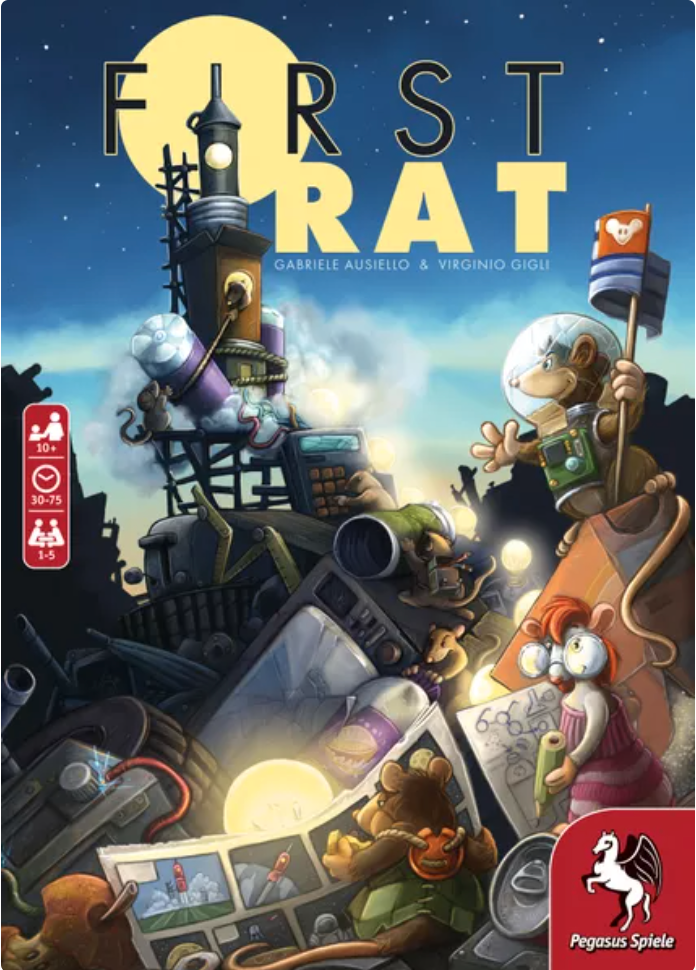
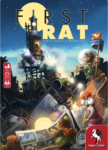
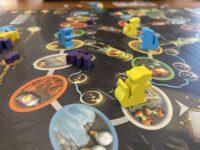
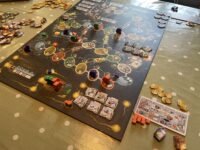
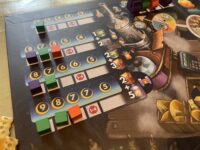


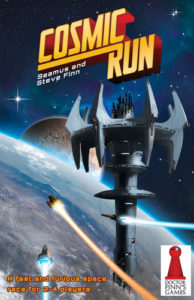
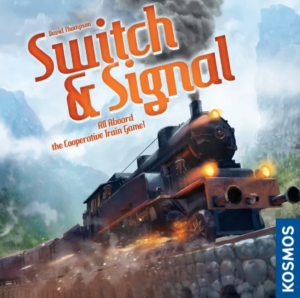
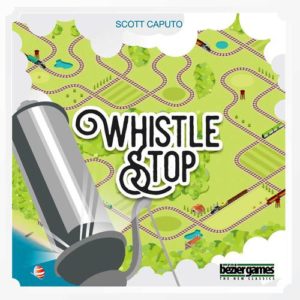
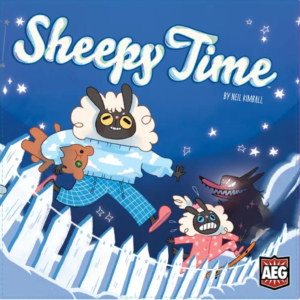
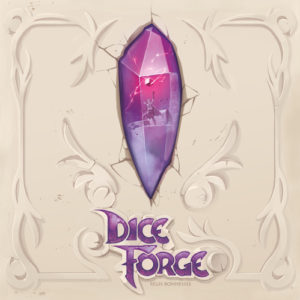
Sam says
One of those games - there are a few - when the board and the bits look like absolute madness at first glance, but an hour later you're hurtling towards a finale with everyone taking speedy turns. It's easy: get stuff to build the rockets with your rats. Get more rats to increase that income. Cheese gives you more flexibility on where you can stop. Cash in your stuff to build rocket parts and get points. Outside of a couple wrinkles (the lighting track, the burrow) that is pretty much the game, and the beauty of it is every turn is rewarding in some fashion: the goal is to maximise those returns. But... it's also true to say that it's entirely possible to win having built the least rocket components! Part of First Rat's appeal and replayability is that while one player is diligently harvesting peas and calculators to build cockpits, another might simply rush their rats into the rocket to end the game. It's the twin objectives between building and racing that gives the game an element of brinkmanship and keeps players watching each other.